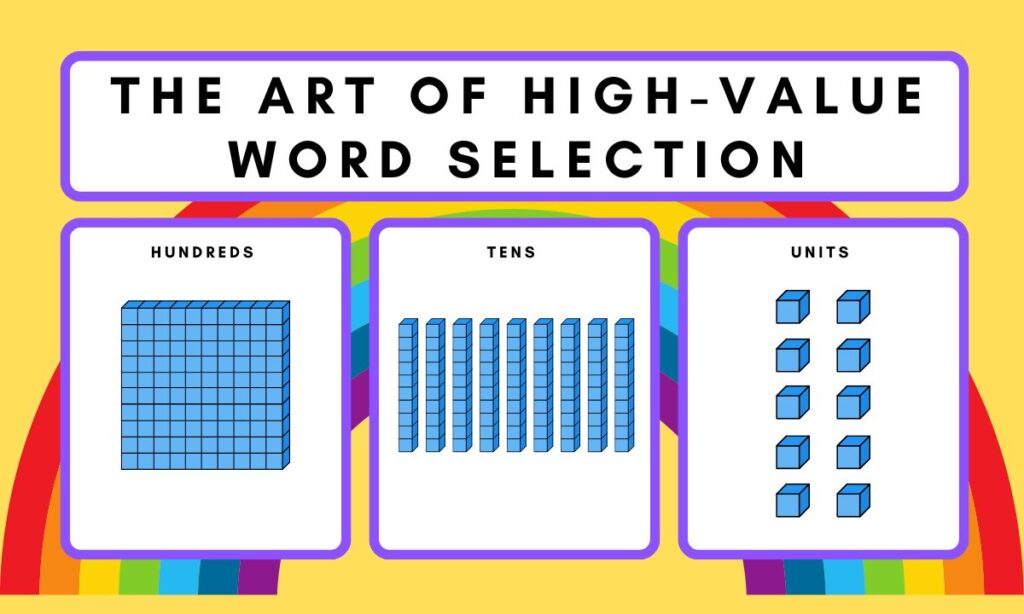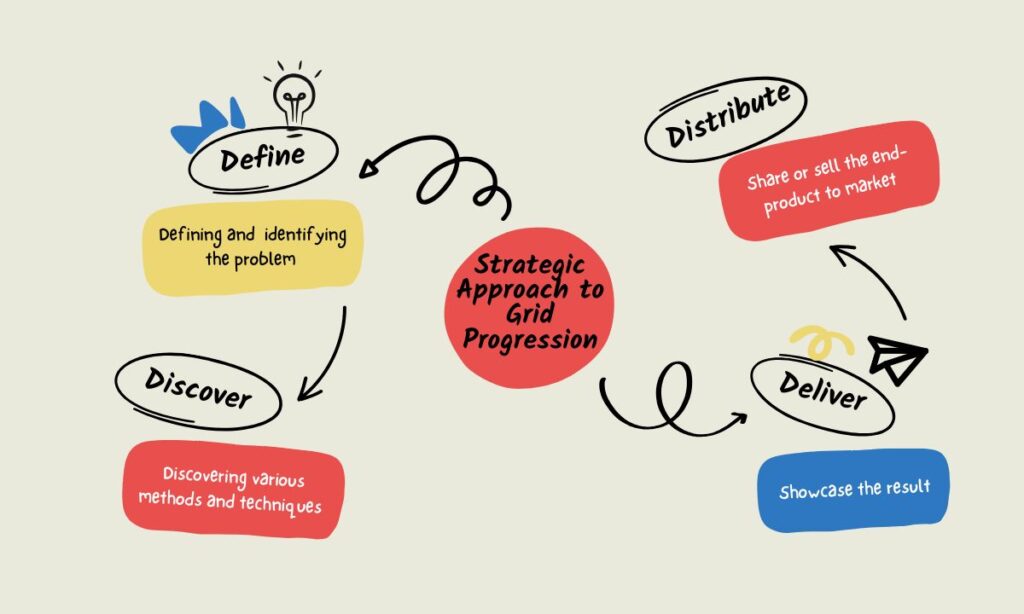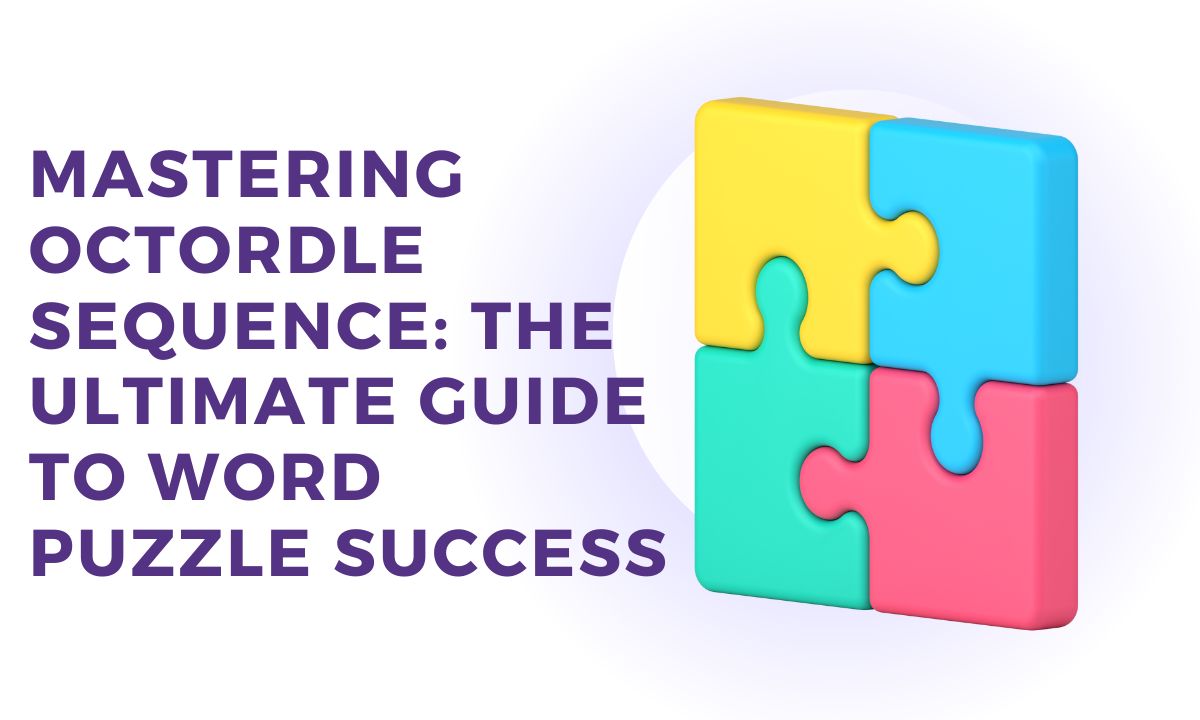Mastering Octordle Sequence represents the pinnacle of word puzzle evolution, challenging players to decode eight sequential grids with precision and strategy.
The game demands a deep understanding of letter patterns and word relationships, transforming casual players into skilled linguists through its unique blend of sequence-based problem-solving.
Success requires mastering the delicate balance between efficient guessing and careful analysis, making each attempt a strategic step toward becoming an Octordle Sequence expert.
What Is Octordle Sequence?
At its core, Octordle Sequence is a sophisticated word puzzle that employs letter sequencing and morphological patterns to create an engaging gaming experience.
Players must decode eight five-letter words in sequence, utilizing their understanding of word relationships and language patterns to progress through each grid. The game’s structure promotes systematic thinking and strategic word selection.
A Unique Spin on Word Puzzles

Unlike traditional word games, Octordle Sequence incorporates semantic analysis and character sequences in a unique format.
The sequential nature of the game requires players to complete each grid before moving to the next, creating a structured approach to word solving.
This format enhances the player’s ability to recognize word structures and improve their word context understanding.
How Does Octordle Sequence Work?
The mechanics of Octordle Sequence revolve around letter distribution and text parsing. Players begin with a limited number of guesses to solve all eight words, making efficient use of common vowels and consonants crucial.
The game provides color-coded feedback for letter placement, helping players refine their guesses and develop stronger word prediction skills.
Strategies for Success in Octordle Sequence
Success in Octordle Sequence requires mastery of lexical analysis and strategic thinking. Players should focus on using high-value starting words that contain frequently used letters.
Understanding dictionary terms and common letter patterns helps optimize each guess and maximize the information gained from the game’s feedback system.
The Art of High-Value Word Selection

Understanding word patterns is crucial when selecting your starting words in Octordle Sequence. The most effective starting words contain a balanced mix of commonly used consonants and common vowels.
Words like “STARE,” “CRANE,” or “AUDIO” provide valuable insights into multiple potential solutions through strategic letter placement. Expert players often begin with words containing ‘S’, ‘T’, ‘R’, ‘A’, and ‘E’ as these letters frequently appear in English word structures.
Maximizing Feedback Efficiency
The color-coded feedback system in Octordle Sequence serves as a sophisticated text analysis tool. Green squares definitively confirm correct letter combinations, while yellow squares provide crucial information about character sequences that require rearrangement.
This feedback mechanism facilitates advanced word prediction strategies, allowing players to narrow down possibilities systematically. Understanding how to interpret and act on this feedback transforms casual players into skilled strategists.
Advanced Pattern Recognition Techniques
Successful players develop strong pattern matching abilities through consistent practice. Understanding common suffixes like “-ING,” “-ED,” and “-EST” enhances your lexical analysis capabilities.
These morphological patterns often provide crucial insights when solving later grids. Experienced players naturally develop an intuition for word relationships and can quickly identify potential solutions based on partial information.
Strategic Approach to Grid Progression

Moving through the grids requires careful attention to language processing and strategic thinking. Each solved grid provides valuable insights into common letter distribution patterns that might appear in subsequent puzzles.
Players must balance the desire to solve quickly with the need to preserve guesses for later challenges. This strategic depth makes Octordle Sequence particularly engaging for players who enjoy both linguistic and logical challenges.
Developing Linguistic Knowledge
Regular gameplay naturally enhances your linguistic knowledge and vocabulary skills. Players often discover new dictionary terms while attempting to solve particularly challenging grids.
This exposure to diverse vocabulary strengthens your understanding of language patterns and improves your overall word puzzle-solving abilities.
The game effectively combines entertainment with educational value, making it an excellent tool for language development.
Time Management and Focus Strategies
Success in Octordle Sequence requires effective time management and sustained focus. Expert players develop a systematic approach to text parsing, analyzing each grid’s feedback methodically without rushing to conclusions.
They maintain a balance between speed and accuracy, understanding that hasty guesses can quickly deplete their limited attempts. This measured approach proves particularly valuable when facing challenging word combinations.
Building a Strong Foundation
Mastering Octordle Sequence requires developing a robust understanding of word context and letter frequency patterns.
Players should focus on building a strong foundation in basic word recognition before attempting to speed through puzzles. This methodical approach leads to more consistent success and fewer frustrated attempts.
Advanced Solving Techniques

Experienced players develop sophisticated strategies for handling complex situations. When standard approaches fail, they employ advanced semantic analysis techniques to identify potential solutions.
This might involve temporarily setting aside challenging grids to focus on more promising opportunities, then returning with fresh insights from solved puzzles.
The Role of Pattern Analysis
Understanding the underlying language structure of English words significantly improves solving efficiency. Players learn to recognize common consonant clusters and vowel patterns.
Developing an intuitive sense of likely letter combinations. This pattern recognition skill becomes increasingly valuable as players progress to more challenging grids.
ALSO READ THIS BLOG: Mati Marroni Bio, Age, Career, Net Worth, Height, Education, Boyfriend & More
Maintaining Strategic Flexibility
Successful players remain adaptable in their approach, adjusting their strategies based on each puzzle’s unique challenges.
They understand that rigid adherence to a single method can lead to unnecessary difficulties. This flexibility, combined with strong vocabulary analysis skills, enables consistent success across various puzzle configurations.
Frequently Asked Questions
How many attempts do I get in Octordle Sequence?
Players receive 13 attempts to solve all eight words, making strategic guessing essential for success.
What makes Octordle Sequence different from regular Octordle?
The sequential unlock system requires solving each grid before progressing, creating a more focused solving experience.
Are the words in Octordle Sequence different each day?
Yes, each daily challenge features unique words, ensuring fresh gameplay every 24 hours.
Can I practice Octordle Sequence without affecting my daily score?
The practice mode allows unlimited attempts without impacting your daily game statistics.
How does the color-coding system work?
Green indicates correct letter and position, yellow shows correct letter but wrong position, and gray means the letter isn’t in the word.
Conclusion
Mastering Octordle Sequence requires dedication to understanding language structure and developing strong vocabulary analysis skills.
The game offers an engaging platform for improving word puzzle capabilities while providing an entertaining challenge. Success comes through consistent practice, strategic thinking, and a deep appreciation for the nuances of language patterns.

David is a seasoned SEO expert with a passion for content writing, keyword research, and web development. He combines technical expertise with creative strategies to deliver exceptional digital solutions.
















